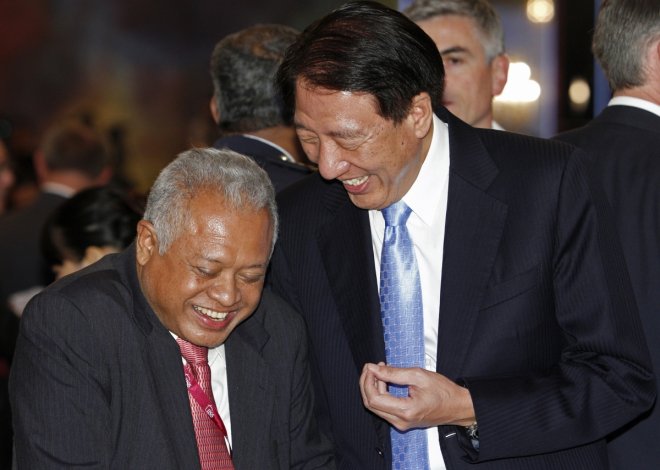
Singapore's Deputy Prime Minister Teo Chee Hean, on Saturday (September 30) spoke at a lunch for the members of the Religious Rehabilitation Group (RRG), Inter-Agency Aftercare Group as well as other community leaders and volunteers, thanking them for supporting Singapore's counter-terrorism rehabilitation programme.
As reported by Channel NewsAsia, Teo stated that Singapore stands at a vulnerable position due to the terror threat that has been augmenting ever since the Jemaah Islamiyah group was uprooted in 2001. He further asserted that radicalised views among religious and political sects will not be tolerated. Those with a radical bent of mind should be reported to relevant rehab agencies, where reported individuals will receive proper religious and psychological counselling. This will help to "save them from harming themselves and others, and bringing, even more, distress to their loved ones" said Teo.
Teo who is also Coordinating Minister for National Security said that RRG's aim is to make the Muslim community aware of the Resource and Counselling Center. Also, the Muslim community should help at-risk individuals and families integrate into the society. He further added that Singaporeans should interact with one another freely, irrespective of religious barriers.
Singapore, though is trying to keep a distance from the ever increasing intolerance in the region, the administration believes that it is vulnerable to terror attacks because of the ongoing unrest in the neighbouring countries. Authorities, therefore, are coming up with new ideas to counter social threats including terrorism, religious intolerance and radicalism.
"When we became independent, all our communities in Singapore resolved to live together and build a multiracial society. With so much racial and religious conflict even in our own region, it takes special efforts and measures to keep Singapore peaceful and harmonious," said Teo.
Beefed up security
Singapore's Immigration and Checkpoints Authority (ISA) on September 25 had declared to extend their plans on thumbprint scanning for car travellers passing through the Tuas and Woodlands checkpoints. The scanning will be made mandatory for travellers aged six and above. This in itself is a huge step in developing the security system for a complete biometric verification of a traveller will help guard the country against unwanted threats.
Keeping in mind the unrest that is gradually crossing the saturation level in the neighbouring countries, it is quite evident therefore for Singapore to tighten its boundaries and control minor unrests from the grass-root level.
Intolerance in Southeast Asia
Abu Sayyaf's dictatorship in the southern Philippines has already created ripples across Southeast Asian politics. Having taken several people hostage including Malaysian and Indonesian workers and Western tourists, Abu Sayyaf and his group poses a huge threat to the social structure of the county for primarily supporting extreme radical thoughts and owing allegiance to the Islamic state group.
Jakarta's Christian governor Ahok's imprisonment for blasphemy against Islam on Ma 2017 is another such case of growing intolerance. Indonesia, world's largest Muslim majority nation is not far behind the race in debates on intolerance and radicalism. Islamist group supporters called for a maximum penalty for Ahok over comments he made on Koran.
On Friday, September 29, Islamist groups led by Islamic Defenders Front (FPI) organised a protest rally outside Indonesia's parliament, against growing threats from Communism. They did not hinder to call President Joko Widodo as the son of communists and not a true Muslim.
The ongoing crisis in Malaysia due to regular threats from the Daesh militant group is yet another setback for tolerance and minorities.
Bearing all these obstructions and threatening situations in mind, Singapore is constantly updating their security system including social integration programmes.
The Lion City also took steps to train Grassroot leaders on how to help residents respond and deal with the psychological effects of a terror attack on March 2017. According to reports, the Human Emergency Assistance and Response (HEART) teams will conduct the training, which will help in identification of residents, portraying post-terror stress.
Teo confirmed that Singapore's Muslim community has supported the Asatizah Recognition Scheme, demanding the registration of the religious leaders with the Islamic Religious Council of Singapore (MUIS) so that their teachings can guide the community to practice what is relevant in Singapore.
"Our asatizahs are well-positioned to impart religious knowledge from credible sources that is contextualised to our multireligious society," added Teo.
Teo Chee Hean confirmed that the Singaporean government will not think twice before barring preachers whose teachings can cause friction between different communities.








